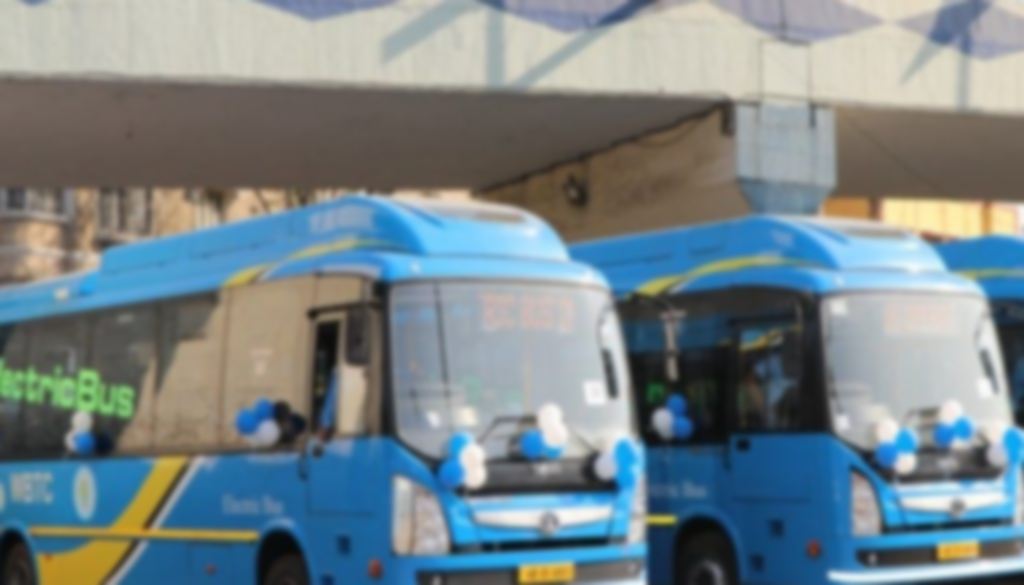Experts laud Centre’s push for electric buses, say that it could transform India’s public transport

New Delhi, 22nd August 2023: In a major push for electric mobility in public transportation last week, the Central government approved the ‘PM E-Bus Seva’ scheme which will deploy 10,000 new electric buses across the country. Union Minister Anurag Thakur announced that the scheme will have an estimated cost of Rs.57,613 of which the Centre will provide Rs.20,000 crore and support bus operations for 10 years.
This latest announcement falls in line with India’s ambitious plan of inducting 50,000 electric buses in the next 5-7 years.
The scheme not only advocates for the uptake of electric vehicles but also provides extensive backing for the advancement of crucial behind-the-metre power infrastructure and prioritising bus transit, multimodal transfers, and implementing automated fare collection systems. It also aligns with broader goals around improving air quality, curbing emissions, decarbonising the transport sector, and a step towards the targets India has set to tackle the climate crisis.
The Centre’s decision has been welcomed by climate and mobility experts across the country. With an estimated daily ridership of 6 million passengers, these buses are expected to cover 6 billion bus-kilometres throughout their lifecycle. According to World Resources Institute (WRI) India’s estimates, the adoption of electric buses holds immense potential to reduce 16.5 million tonnes of carbon dioxide (CO2-equivalent) tailpipe emissions over the course of 10 years.
“The decarbonisation of the transport sector is a critical parameter for achieving India’s ambitious goal of Net Zero by 2070. This scheme, coming at the opportune time of India’s G20 presidency, is a testament to our climate commitments. Investing in 10,000 e-buses will directly impact the quality of life and livelihood generation for the masses. The scheme will have a profound impact on improving public transport infrastructure in over 100 cities across the country that can create up to 50,000 job opportunities in the transport sector. The scheme is a huge tailwind for India’s ambition of deploying over 50,000 electric buses by 2030. What sets this scheme apart is its provision of viability gap funding on an operational basis, going beyond the availability of subsidies – which are limited in their impact in the long run,” says Pawan Mulukutla, Director of Integrated Transport, Electric Mobility & Hydrogen at WRI India.
According to a previous study by the Indian Institute of Science, Bengaluru, annually 25 tonnes of CO2 emissions can be saved if we replace even a single diesel bus with an electric bus. This statistic holds true even when the electric bus relies on thermal energy for charging purposes.
Kashmira Dubash, Senior Program Manager, ITDP India says, “India has committed to global and national targets to tackle the climate crisis. In light of this, the PM e-bus Sewa Scheme echoes a concerted effort for a cleaner and more connected India. Notably, the initiative prioritises cities that currently lack an organised bus service, and thereby bridging gaps in urban connectivity.Furthermore, while the number of buses introduced through the Scheme is limited, it instils optimism by indicating the Centre’s inclination to reinforce India’s state-owned fleet, which currently stands at a modest 1.4 lakh buses.”
Keeping in mind the challenges that State Transport Undertakings will face in funding such an effort, the scheme is also designed to provide operational support to bus services for a period of 10 years.
“It is indeed great news that the national govt has announced the 10,000 e-bus project. This is a positive development that is in line with the country’s goals in regard to decarbonisation in the transport sector. In order to ensure the fruitful execution of this vision, the government must also support the State transport undertakings on covering operational costs of vehicle kilometres travelled on eBuses,” says Sanjay Sridhar, a global expert on Sustainability, Cities and Climate Change.








